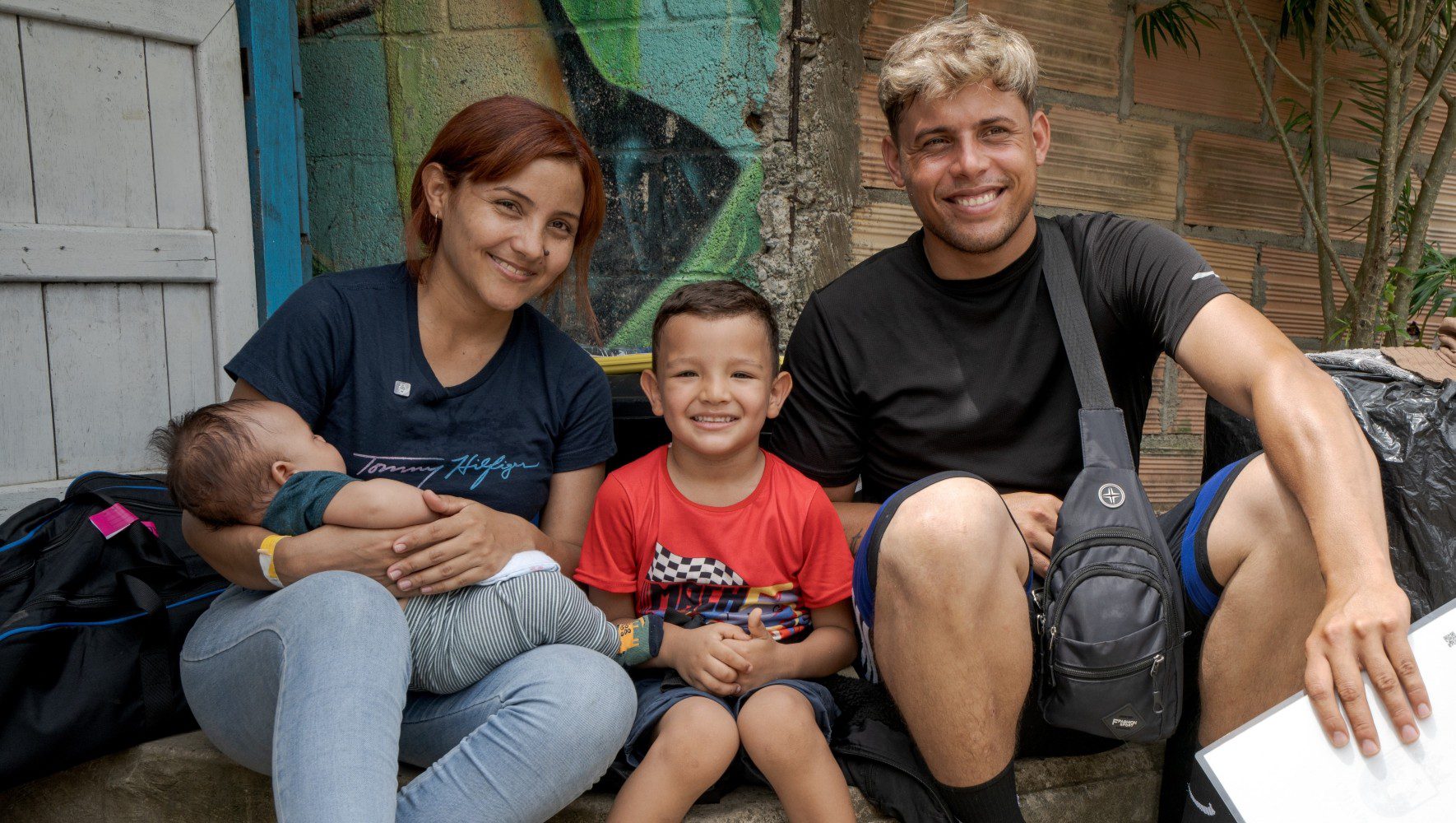A Little Help From a Lawyer Can Mean a Lot: Reflections From the Border
By Jane Ginns and Ruthanne Miller, Guest Contributors
Aug 30, 2018

U.S. Border Patrol agents take a father and son from Honduras into custody near the U.S.-Mexico border on June 12, 2018 near Mission, Texas.
(John Moore/Getty Images)
In August, HIAS sent a legal delegation of volunteers, staff, attorneys, and translators to the Port Isabel Detention Center in Texas. In partnership with the South Texas Pro Bono Asylum Representation Project (ProBAR), the mission met and consulted with adult asylum applicants, many of whom have been separated from their children after crossing the U.S. border. Here are some of the impressions from two participants: Jane Ginns, an attorney, a former HIAS client and a current HIAS board member; and Ruthanne Miller, an attorney who has volunteered for a hotline for asylum seekers in detention centers.
Jane Ginns: The detainees we encountered were mothers and fathers, young and old, stoic and tearful, direct and shy.
It was a shock for me to learn about some reunification policies: a child separated from his mother at the border may be unified with a father who was already present, even if the child does not have a real relationship with the father and hasn’t seen him in years. The mother remains in detention, facing deportation as she muddles through her asylum case separately from her child, with the very real possibility that she may never see that child again as he proceeds through his own immigration case independently. In many respects, it is a modern-day Sophie’s choice: does the mother accept her own deportation while affording her child the opportunity to pursue a better, safer life in the U.S., or does she fight to get him back and return together to a place of guaranteed danger?
However varied the stories from Guatemala or Honduras or El Salvador, by the end of our trip two universal themes emerged for me with unavoidable clarity. One, each of these asylum seekers is pursuing the quintessential American dream that has steered immigrants to our shores from the Puritans to my own generation of Russian refugees: the quest for safety from persecution, and freedom to live their lives in peace. Two, however varied our political opinions about immigration, the opportunity to pursue an asylum claim is a right under the laws of the United States of every person who requests it, and it is our moral and legal duty to make sure that opportunity is truly afforded to those who need it to the fullest extent of the law.
HIAS’s mission is to rescue and protect people who are in danger for being who they are. We are fortunate to have the chance to apply our expertise at our own border. I could not be more proud to have HIAS take up that mantle.
Ruthanne Miller: All our clients were men. All had been separated from their children who were also detained and sent to other states. Most were from Honduras and had fled persecution by the drug cartel. They shared stories of witnessing the murder of multiple family members and friends or being directly threatened.
One of our most “at risk” clients was Eduardo*, who had fled Honduras with his 8-year-old son. He was a farmer targeted by the cartel and given no protection by the police as he traveled to and from the urban areas to sell his produce. One of his brothers and a cousin, both farmers, had been killed by the cartel. Many members of his community had been murdered.
Eduardo’s son, Marcus, was taken from him two days after they arrived in Texas. Ten days later, Eduardo was brought from his bunk for a “credible fear” telephone interview, to determine if he would be allowed to stay or be deported. At that moment, Eduardo had not slept, was distraught, and could think only about his son. He not only failed his interview, but also checked a box on an order declining his right to appeal. He based his decision on misinformation circulating among the detainees that declining would result in a quicker reunification with his son. Instead, Eduardo was placed in a position to be deported more quickly.
Marcus was in a New York City detention center, fortunate to be represented by a pro bono attorney there. The attorney was seeking to get Marcus released into the custody of Eduardo’s brother who lives in the United States.
For a second time, Eduardo signed a document contrary to his interest. His deportation officer had persuaded him to state that if he were deported, he wanted to take his son with him; but Eduardo had made the difficult choice to ask that his brother be allowed to take care of Marcus. Marcus’ attorney and I coordinated efforts to guide Eduardo in clarifying on a new form his true intent, so as not to jeopardize his son’s possibility to remain with family in the United States.
Worried that deportation might be imminent, I quickly drafted an appeal of the negative credible interview finding and submitted it to the Department of Homeland Security. Detainees are not supposed to be deported while an appeal is under consideration. Pro Bar and Marcus’ attorney are watching for the decision and watching Eduardo’s status.
I believe that attorneys can make a great difference in these asylum seekers’ ability to prevail, one detainee at a time. I was privileged to be a part of this mission. I hope that future trips provide many other attorneys with this privilege of a lifetime to bring freedom, safety, and justice to those seeking asylum in our country.
*names were changed to protect identities.



